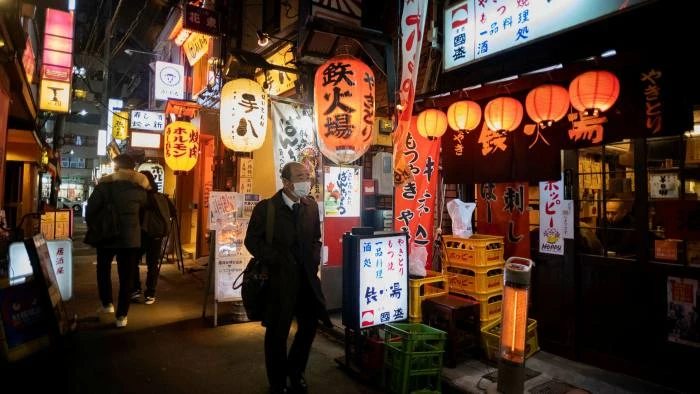
Akemashite omedetou gozaimasu or happy new year from Tokyo. The city is under a fresh state of emergency to control Covid-19 but the rules are mild; schools are still open and the main change is restaurants having to close at 8pm. The big question is whether it will be enough to stop the virus. Evidence from other countries might suggest not, but the Japanese public are good at following rules, and compliance with practices such as mask-wearing is exceptionally high.
With the Regional Comprehensive Economic Partnership and Japan-UK deals both agreed, the immediate trade agenda in Tokyo is light: there are long-running talks with Turkey, Colombia and over a possible Japan-China-South Korea trilateral agreement. The latter is by far the most significant, but today’s note discusses one of the main obstacles — the likelihood of a fresh crisis between Tokyo and Seoul over wartime history — and how Japan may choose to handle it.
Policy watch covers how Brexit is affecting the food industry, while our chart of the day examines the impact on foreign investment of Turkish president Recep Tayyip Erdogan’s tighter grip on power.
Don’t forget to click here if you’d like to receive Trade Secrets every Monday to Thursday. And we want to hear from you. Send any thoughts to trade.secrets@ft.com or email me at robin.harding@ft.com
Relations sour between Japan and South Korea
By the summer of 2019, the global technology industry was getting used to tension between China and the US on trade, but it was taken aback when a dispute erupted between two of the most important and stable nations in semiconductor supply chains: Japan and South Korea. Citing a loss of trust between the two countries, Tokyo suddenly imposed export controls on fluorinated polyimide, photoresists and hydrogen fluoride etching gas — three crucial chemicals for which its companies have a dominant market share.
Underlying the stand-off was a dispute over forced labour during the second world war. South Korean courts have awarded damages against Japanese companies such as Mitsubishi Heavy Industries. Japan says all claims were settled when it paid compensation in a 1965 treaty. South Korea threatened to pull out of an intelligence sharing agreement, but the US persuaded both sides to stand down and the issue went quiet for a while.
It has not gone away, however. The rulings on forced labour have been working their way through the South Korean courts, and at some point soon they may order sales of local assets belonging to Japanese companies. Until now, there have been court rulings but no actual losses suffered; the forced liquidation of Japanese assets would mark a new and more serious stage in the crisis.

Tokyo would feel obliged to respond. The question is how. The 1965 treaty calls for arbitration, with each side appointing an arbitrator, and a third arbitrator selected either by the first two or by a neutral power. However, South Korea has declined to appoint arbitrators so this route is out, and while Japan might try for the legal high ground by bringing a case to the International Court of Justice, the Korean side is unlikely to agree to ICJ jurisdiction.
Japanese public opinion is also likely to demand stronger action. Direct, tit-for-tat retaliation targeting the assets of South Korean companies would run foul of Japan’s domestic law and constitution, which states that the “right to own or to hold property is inviolable”. Even an act of the Diet, Japan’s parliament, would probably not allow the arbitrary taking of assets from local subsidiaries of foreign companies.
Instead, Japanese government lawyers will be scouring the precedent books for some kind of state-level retaliation — be it sanctions, tariffs, export controls, regulation, visas or some other area of international co-operation — that causes more pain in Seoul than Tokyo, passes legal muster and does not lead to instant defeat in the court of international opinion. The 2019 export controls did considerable harm to Japan’s image as a reliable supplier. Nevertheless, that is unlikely to stop Tokyo from taking action to defend what it regards as a vital interest.
Ultimately, the only way out of the dispute is negotiation, but there is a gulf between South Korea — where the public increasingly regards the 1965 treaty as illegitimate — and Japan, where the public does not believe South Korea will respect any agreement to settle its wartime history. Joe Biden, the incoming US president, will try to keep the peace but look out for a new trade crisis in east Asia during 2021.




















